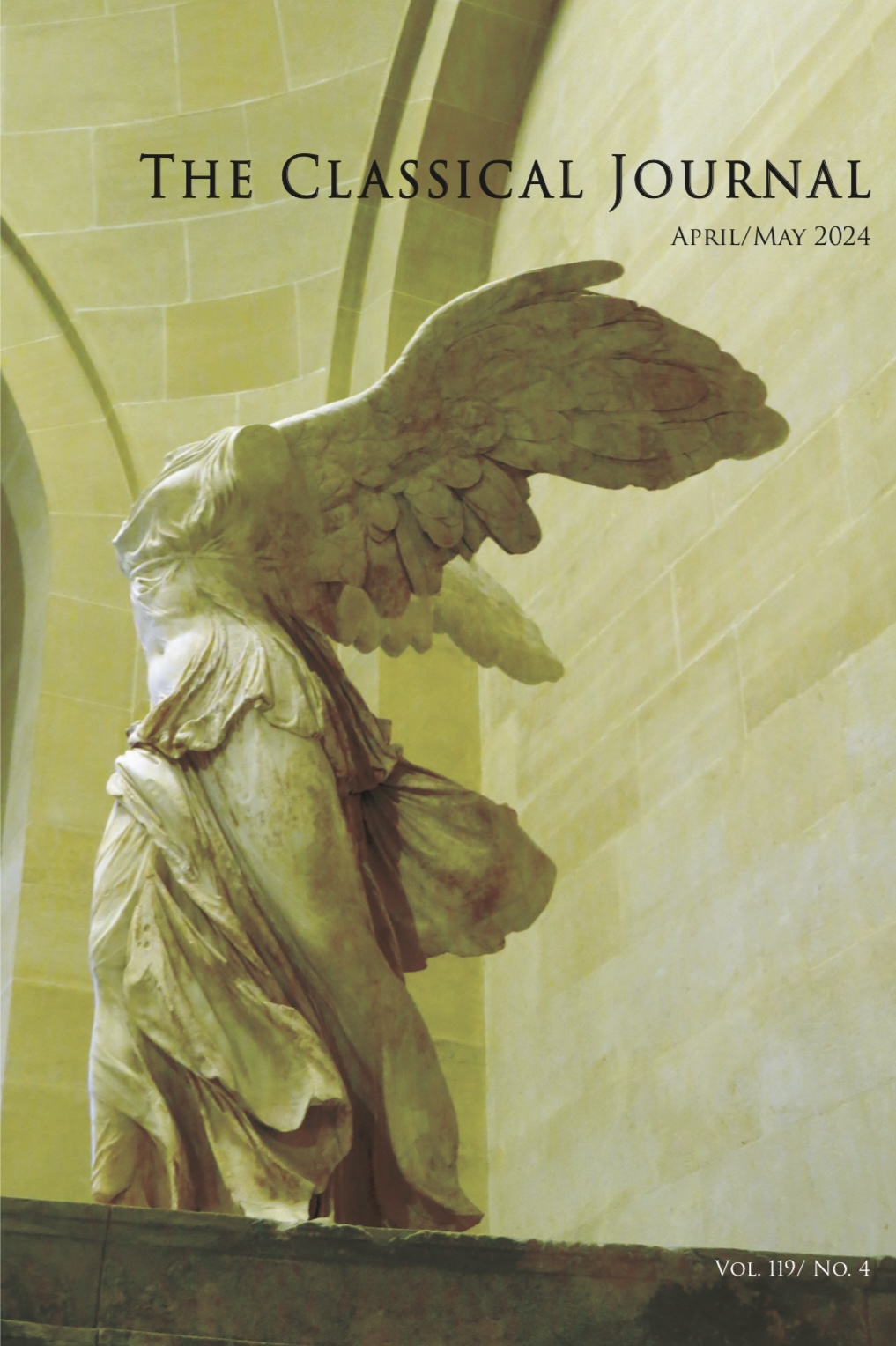The following articles are contained in CJ
109.1
Abstracts of Articles
Poetry and Biography in the Athenaion Politeia: The Case of Solon
Ancient biographies of poets are usually thought to take much of their information from the subjects' poems.
The relationship between poetry and biography is in fact more complex, and I take as a case study the
information about Solon in Ath. Pol. 5-12. Aristotle does use Solon's poetry as a means of establishing
the past, but it is more often the case that he reads other traditions into the poetry than that he
extrapolates new traditions from the poetry alone. Aristotle also uses his historical knowledge to
interpret and comment on the poems in a kind of exegesis.
Sallust's Scipio: A Preview of Aristocratic Superbia (Sal. Jug. 7.2-9.2)
Sallust's narrative of Jugurtha's youth and early military career includes the prince's service under
Scipio Aemelianus in Numantia from 134-3 BCE. Sallust carefully shapes that narrative to portray Scipio
as an exemplar and defender of the mos maiorum; however, the subtle and complex portrait also reveals his
latent tendencies toward aristocratic prerogative that foreshadow the emergence of the virtuous Metellus'
superbia in such a way as to help the reader accept that Metellus' superbia is not anomalous, but inherent
within the Roman aristocratic character.
Journeys and Nostalgia in Catullus
This article explores the themes of travel, homecoming and homesickness in Catullus' poetry. A recurrent
interest throughout much of the poet's oeuvre, the idea of the journey offers the reader multiple angles of
interpretation: from the emotional to the metapoetic, and from contemporary social contexts to far-off
mythical ones, all along the way contributing to the complex presentation of the poet himself. Ultimately,
the reader is left with a paradoxical picture of Catullus as both a wanderer and a stay-at-home, both an
achiever of nostos and a victim of incurable nostalgia.
Since the Child Smiles: A Note on Virg. Ecl. 4.62-3
This study argues that, at Ecl. 4.62, Quintilian's manuscript reading qui non risere parentes is superior
to the two commonly accepted readings, cui non risere parentes (Virgil's MSS) and qui non risere parenti
(the conjecture of Shrader and Bonnell).
Domitian's Lightning Bolts and Close Shaves in Pliny
Pliny's portrayal of his public life under Domitian has often come under fire from both those who approach
Pliny's Letters from a historical perspective and those who study them as a literary production. This article
reevaluates Pliny's experiences in five significant areas: public speaking, amicitia, political promotion,
threats of political persecution, and survival and reconciliation. In all of these circumstances, Pliny is
found to be an honest narrator of his own political struggles under Domitian and an eloquent voice for his
generation's endurance.
And Now For Something Completely Different: Addressing Assumptions About Myth
Many students in introductory myth classes assume that Greco-Roman myth is comprised of a canonical
collection of well-known stories, and that those stories might be entertaining but ultimately have little
relevance to the modern world. This essay explores ways to address these assumptions and help students to
understand the complexity of myth, how it was used to explore social issues, and how it can still be
relevant today. I also discuss a lecture that explores modern attitudes toward representing the divine
in song, film and literature, and then compares our attitudes to those of the Greeks.


